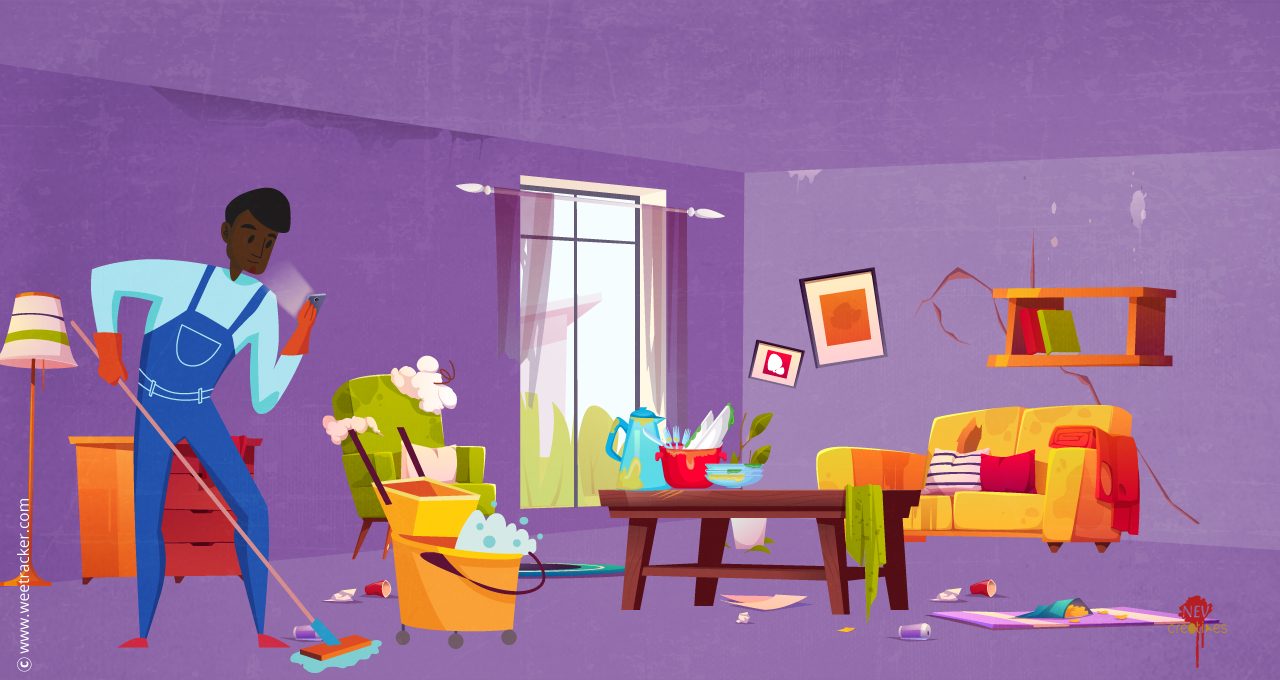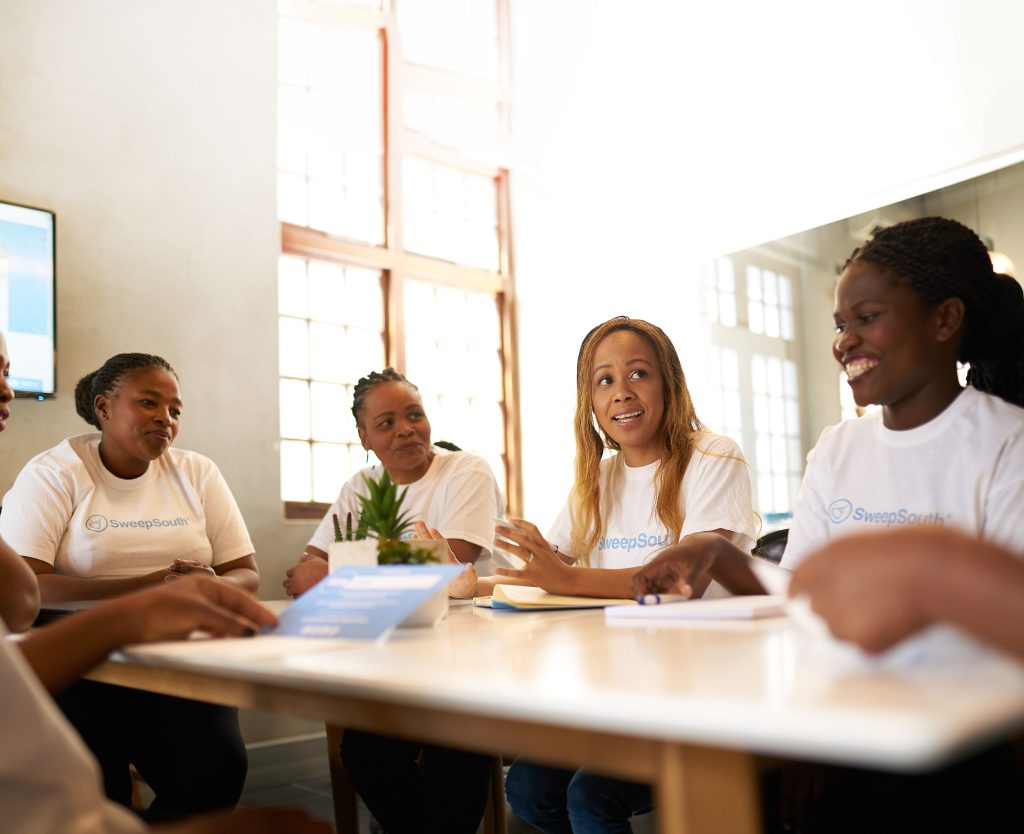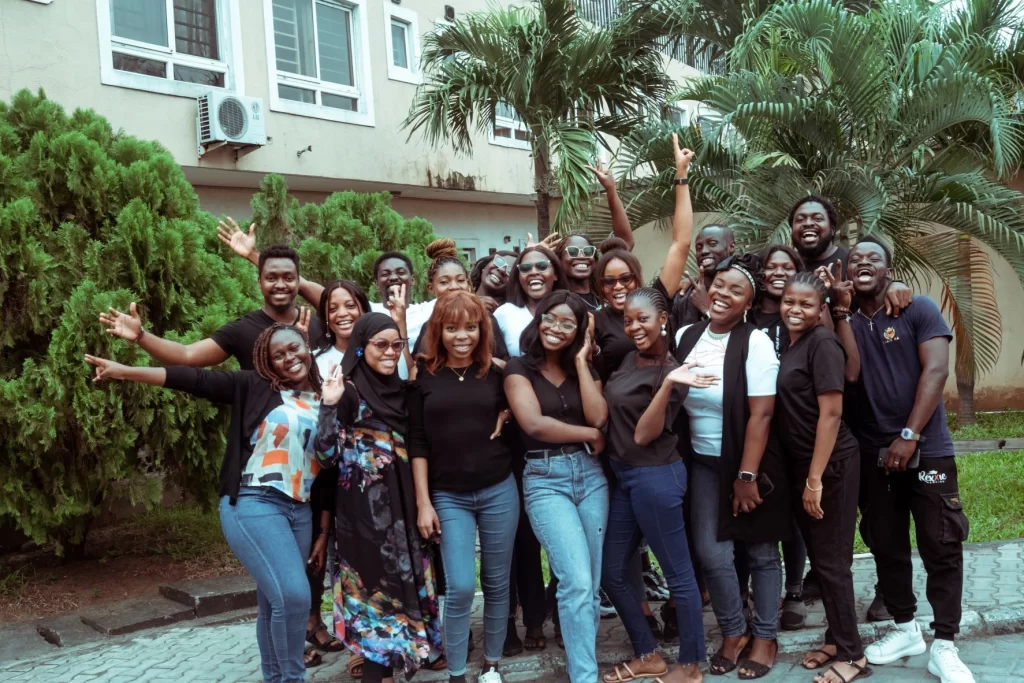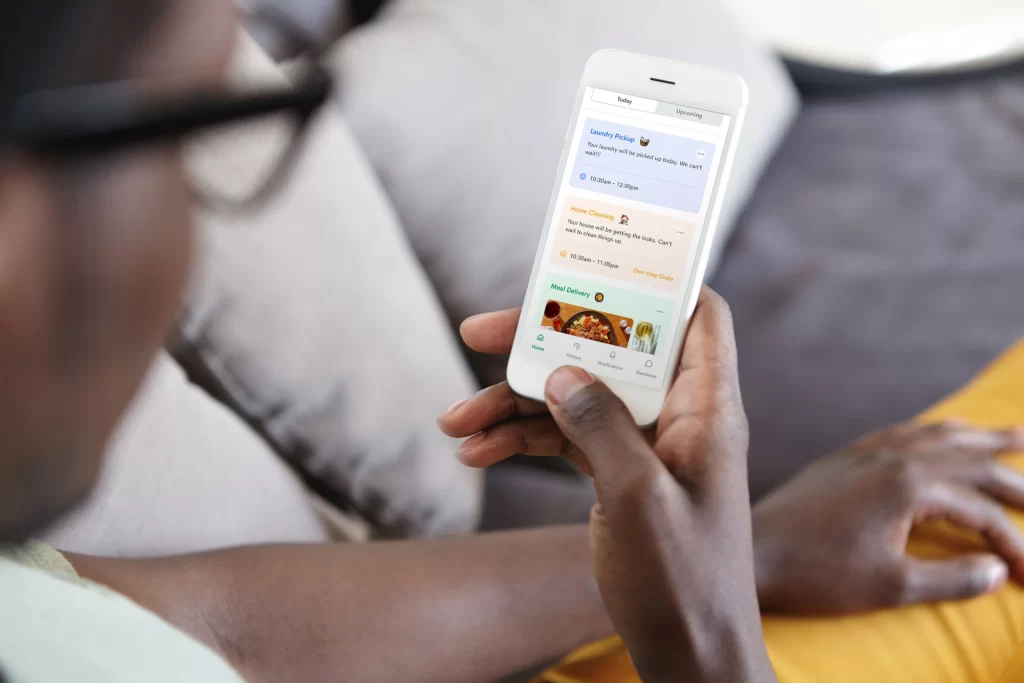How An Unusual Bet By ‘Housekeeping Startups’ Is Reshaping Nigerian Living & Livelihoods

It’s just past midday on Monday, June 27, and Joy (surname withheld), in her mid-twenties, is heading back home having finished the day’s work. She had spent the last couple of hours tidying up an apartment in Lagos; a gig she had gotten the day before but had to reschedule due to personal reasons. All this was made possible by a platform a friend told her about two months ago.
With four or five more outings like this one over the next couple of days, she would pocket around NGN 20 K (~USD 50.00) by the end of the week. That’s the same amount she received as a monthly salary in her previous job as a sales clerk at a merchant shop; a job she had to settle for as a primary means of livelihood.
Like many of her peers, Joy had resorted to what was effectively underemployment given all her post-University job-hunting efforts had come to nought in Nigeria’s well-documented dire job market, where unemployment has reached alarming levels at over 33 percent.
It’s hard for anyone to get by on a meagre income of USD 50.00 a month in today’s economically-battered Nigeria, more so for Joy as she’s primarily responsible for her welfare and, to an extent, that of her younger siblings. And her occasional neighbourhood hairstylist side hustle did not help much.
Thus, when she learned about potentially tripling her income on SweepSouth, one of the new entrants among a new crop of digitally-mediated platforms reshaping the domestic services industry in Nigeria, it was a no-brainer.
“Some days, especially on Saturdays, I do two apartments. On other days, I do just one, like today,” she told WeeTracker over a phone call, explaining that she had just finished the day’s job before noon and was heading home on that particular Monday.
“I like the job because it is flexible, I choose when I want to work and it pays well,” she said.
Tech meets chores
Having started out in South Africa as the brainchild of co-founders Aisha R. Pandor and Alen Ribic some eight years ago, SweepSouth brought its service – which connects clients to on-demand housekeeping personnel (fondly called “SweepStars”) via an online booking platform – to Nigeria towards the end of last year.
Although the official launch of its app Nigeria is scheduled for later this month, the Naspers-backed startup has joined other startups like Eden Life and Fichaya that are using digital platforms to serve two compelling needs of everyday life: Easier living and better livelihoods.

Image Credits: SweepSouth
The domestic services industry in Nigeria is largely informal, fragmented, and unreliable. Generally, home services that mainly involve cleaning, cooking, and laundry in Nigerian households have traditionally been rooted in the problematic and abusive live-in ‘house-help’ culture that often exploits children, teens, and even adults.
Other periodic informal arrangements with neighbourhood odd-jobbers are also often tedious and unsatisfactory, while the more reliable, sophisticated professionals are often, exclusively, in the league of the affluent class.
Thus, the promise of affordable and seamless service delivery facilitated by online platforms that enable individuals and even organisations to request and get help from vetted domestic services personnel – not unlike how clients outsource digital work on Fiverr – is slowly becoming a fixture of urban living in Nigeria, especially in cities like Lagos, Abuja, Port Harcourt, and Calabar.
“We’ve designed our platform such that demand is able to be met at a point where it works for both the demand side and supply side. I like to describe our platform as Tinder for cleaning, but we are also looking at many other services,” said Awazi Angbalaga, Country Manager of SweepSouth Nigeria.
“We’re very intentional about coaching SweepStars and keeping them well-compensated and incentivised to deliver only on the days of their choosing and not more than two gigs a day spaced at least three hours apart… such that clients can rest assured that whoever is coming to clean their home would be professional and thorough.”

Image Credits: TechCabal
Everyday living on autopilot, sort of.
Between small-time, semi-formal operations coordinated on WhatsApp and other social media to online gig work startups like SweepSouth and Fichaya, and even fully-integrated, app-based living services providers like Eden Life, Nigerian households are starting to handle their home-cleaning, cooking, and laundry the same way they get their Uber.
Individuals and organisations are connecting with domestic services personnel over online platforms and leaving the rest to them. These clients, who are also put through Know-Your-Customer (KYC) checks, typically make provisions for the cleaning products.
“I share an apartment with two other housemates. Everyone takes care of their rooms pretty much, but it’s quite a hassle to sort out the cleaning of the other areas conveniently because I mean everyone is busy. So outsourcing helps,” Oluwadamilare Akinpelu, a digital media professional, told WeeTracker.
“I just stumbled on SweepSouth on Twitter while looking for a cleaner we can outsource to and I checked them. They have very fair prices I must say, I’ve had good experiences so far though I was sceptical at first.”
The fees on these platforms – where domestic services can be requested on a one-time basis or on a recurring basis with periodic subscriptions – typically range from as low as NGN 4 K (~USD 10.00) for a minimum one-time service to well over NGN 200 K (~USD 500.00 ) for full-option monthly subscription packages. The payments are made online at the point of request.
A new pipeline for dignified work
Workers are generally vetted and trained before being taken on as service providers on such platforms. Earnings (not including tips that may happen on-site) are usually compounded on a gig-by-gig basis and paid weekly, with the platform taking a 20-30 percent commission.
However, in the case of Eden Life whose Growth Manager, Adeyinka A., informed WeeTracker that its service personnel are brought on as full-time employees, staffers earn healthy monthly salaries along with full employment benefits; health cover, paid-time-off, bonuses – the works.

Image Credits: TechCrunch
“I love meeting people and my job allows me to talk to a lot of people. Even though I don’t see the customers physically, I love the fact that we can interact, bond, and build trust over time. I like being the go-to person for all their issues and I enjoy helping them,” shared Olabowale Adetoye, who joined Eden Life in 2020 and is now a Gardener; the company’s term for its special caretakers seeing to clients’ living needs on schedule.
Joseph (surname withheld), another SweepStar who spoke to WeeTracker, mentioned he earns around NGN 18 K (~USD 45.00) a week working SweepSouth gigs on and off, in addition to his primary job in an agency contracted to handle janitorial services at the Murtala Muhammed Airport in Lagos.
“What I like about SweepSouth is that I have my freedom and time and it helps me to provide for my mum who is older now and my younger ones who I’m seeing through school,” he shared.
For Omobolanle (surname withheld) – a young student of the University of Ilorin who has been stuck at home for months as schooling remains paused amid yet another infamous strike by the Academic Staff Union of Universities that has kept Nigeria’s public universities shuttered since February – signing up for domestic cleaning gigs has turned out to be a kind of adventure that also happens to pay well.
“I know it’s not that important but I like that I get to visit different places because I have never had the opportunity to know Lagos that much. I also want to take my Chartered Accountant exam and the money will help me process my application,” she enthused.
Put together, it makes for desirable outcomes across multiple fronts: Clients get niggling needs met; workers are gainfully and meaningfully employed with little or no barrier to entry; platforms harvest value – all within the same ecosystem. But this operation can seem out of place at times in a country where spending power is far from optimal and eroding fast with the perennial inflationary pressure in a dwindling economy.
Dire realities cloud huge potential
With a GDP per capita of around USD 2 K and a monthly individual living cost that far exceeds the paltry NGN 30 K (~USD 75.00) minimum wage, much of Nigeria’s 200+ million people are barely scraping by as income levels are markedly low among swathes of the population.
However, the country remains home to an expanding working-class and a resilient middle-class with aspirational designs.
For this vibrant group that tends to sustain its status typically by devoting long hours to productive work with little time to spare for chores, the possibility of affordable domestic service offerings is quite appealing.
Eden Life, which was co-founded in 2019 by three former Andela officials: Nadayar Enegesi (who co-founded Andela), Prosper Otemuyiwa and Silm Momoh, revealed it had 600 customers during its USD 1.4 M seed round announcement last October, while making well over USD 60 K in monthly revenue.
Although the startup recently increased its pricing significantly due to the current dire economic realities in Nigeria, it is convinced the quality of its services and the integrated personalised approach it has adopted would keep customers interested.
“People come to Eden Life because we strive to make every facet of everyday living easier. It’s hard to get quality service in Nigeria, that’s why we have made it our goal to 10X the quality of life. It is reflected in our Gardeners approach and subscription model, ” Adeyinka said.
“For us, it goes beyond cleaning, laundry and meal schedules. It’s about giving people a trusted option where they can get quality service for every aspect of their life, whether you need the services of a beauty therapist, pharmacist, or technician. In Kenya, we already offer beauty and spa sessions.”

Image Credits: Eden Life
As it is, this new wave of digital platforms connecting clients to housekeeping personnel to make chores go away seamlessly may have found a willing market that – albeit still largely untapped – is potentially lucrative.
Nigerians spent NGN 4.6 T (~USD 11 B) eating out in 2019, per the National Bureau of Statistics, and the Economics Intelligence Unit reported that USD 83 B was spent on home cleaning services by mostly middle-class Africans as of 2016. Aggregating and digitalising even just a fraction of that outlay could yield immense value.
For instance, Fichaya, the digitally-mediated housekeeping service which connects its “Cleaning Associates” to individual and institutional clients in Lagos currently (in a similar manner to SweepSouth), was recently revealed to be making around NGN 5 M (~USD 12 K) per month while serving just over 60 homes. This was mentioned by its co-founders who had pitched investors and ultimately raised funding (“to 3X the business”) on the Nigerian version of the TV show, Lions’ Den, which shares similar concepts as famous shows like Shark Tank and Dragons Den.
Beautiful, confident and smart; these 2 ladies, founders of Fichaya, are on a mission to clean Africa.
Do you think the Lions will be sold on the business idea? Play to find out. pic.twitter.com/G9ykkBw14A
— Ultima Lions’ Den (@UltimaLionsDen) June 15, 2022
“We know there’s a need and a market for this, and it’s validated by the traction we have seen in the number of bookings coming on SweepSouth month-on-month,” Angbalaga told WeeTracker.
“Chores in the average African setting have been long shouldered by house-help arrangements that are undignified and oppressive. Millennials and the younger generation want to move away from that lifestyle and foster better working conditions. This is why we have carefully crafted our platform offerings and pricing to make it affordable for the basic Nigerian.”
Not entirely smooth-sailing
Even with all of its desirable qualities, platform work does come with significant precarious elements. Worker welfare and protection remain valid, lingering concerns that even the biggest companies seem to be struggling to fix.
Joseph from earlier did mention an unfortunate incident that resulted in his smartphone getting damaged after it accidentally fell into a bucket of water on a cleaning gig. Also, Joy spoke of rare cases of having to deal with clients who turned out to be rather obnoxious.
“Some of the key challenges domestic workers in the gig economy face range from job security and social protection, to uncertainty in the availability of gigs, leading to concerns on the sustainability and scalability of economic outcome that characterizes the nature of their work,” shared Oreoluwa Boboye, CEO Jobberman Nigeria, a prominent jobs portal and careers platform.
“Domestic workers also don’t get to benefit from some of the perks that have become available with the evolution of the future of work post-pandemic- remote work. This means that they have to wade through whatever the odds are to get to their ‘duty posts’ and deliver, unlike some freelancers in the formal sector.”
Globally, more than half of all gig workers rely on it as their primary or sole income source. However, 40 percent of them make less than minimum wage, though the shortcomings go beyond money.
Gig workers in the domestic service industry often have to deal with significant safety concerns, health expenses that may be incurred on the job, and a constant internal battle figuring whether they will ever make enough money to make the costs somewhat worth it. These elements of fragility and insecurity are some of the main reasons why most gig workers quit within a year.
While Eden Life’s Gardener approach offers an interesting model that addresses much of the lingering problems, it comes with significant cost implications. This might affect sustainability and scale given that price increases, like the one that took effect on July 1 at Eden Life, tend to bring about churn.
Meanwhile, for the domestic services platforms that sort of function as online marketplaces for gig work, success would depend on how well they can expand their reach, maintain the goodwill of clients and their agents in the field, and also make the numbers work while at it.
This is likely to take some doing seeing as only a handful of such companies have shown they can sustainably turn profitable, with most racking up losses as they chase fast growth with tantalising incentives funded by venture capital.
CORRECTION: This article was updated at 16:50 WAT on July 1 to clarify that SweepSouth is yet to launch its mobile app in Nigeria though its web platform is available and functional.